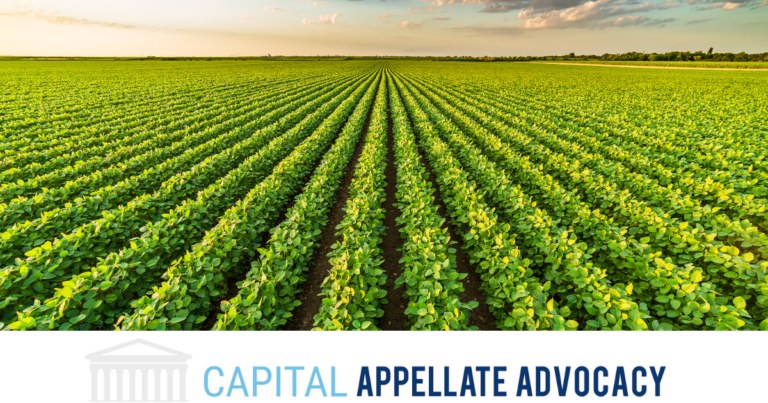It’s no surprise that the U.S. Court of Appeals for the Ninth Circuit is anti-pesticide activists’ favorite appellate court. On June 3, for example, a three-judge Ninth Circuit panel issued an opinion that second-guesses—and vacates—U.S. EPA’s 2018 renewal of the conditional registrations for dicamba, a herbicide that farmers use to produce tens of millions of acres of dicamba-tolerant soybean and cotton crops.
Under the Federal Insecticide, Fungicide, and Rodenticide Act (FIFRA), EPA is required to weigh the benefits of using a pesticide against its human and environmental risks, and its economic and social costs. To ensure that the balance tips in favor of the benefits—and thus allows registration—EPA mitigates the risks, primarily through warnings, precautionary measures, and directions for use on a pesticide’s labeling. EPA did just that in the case of dicamba by imposing carefully considered mitigation measures to reduce the risks of dicamba drifting onto, and damaging, other types of crops.
The court of appeals acknowledged dicamba’s benefits. But according to the court, EPA significantly understated the risks of crop damage caused by dicamba drift, and entirely ignored other risks. The court indicated that the latter not only include the risk of non-compliance with label restrictions, but also the economic cost of dicamba achieving “market dominance,” and the social cost that dicamba “has torn apart the social fabric of rural communities.”
The court’s elaborate but myopic cost-benefit analysis loses sight of the BIGGER PICTURE: The benefits of not depriving soybean and cotton growers of dicamba are far greater than the costs of allowing dicamba’s continued use.
The court of appeals tepidly acknowledged the “practical effects of [its] decision” and the “adverse impact on growers” by depriving them of dicamba. EPA Administrator Andrew Wheeler, however, emphasized the real-world harm that the Ninth Circuit’s decision will cause. He stated in a news release that “At the height of the growing season, the Court’s decision has threatened the livelihood of our nation’s farmers and the global food supply.”
EPA has exercised its authority under FIFRA to allow soybean and cotton farmers to use up their existing stocks of dicamba during the current growing season. The anti-pesticide groups have asked the Ninth Circuit to hold EPA in contempt for implementing the court’s decision in that entirely reasonable manner.
Larry Ebner, founder of Capital Appellate Advocacy PLLC, has been defending the interests of pesticide producers and users for the past 46 years.

